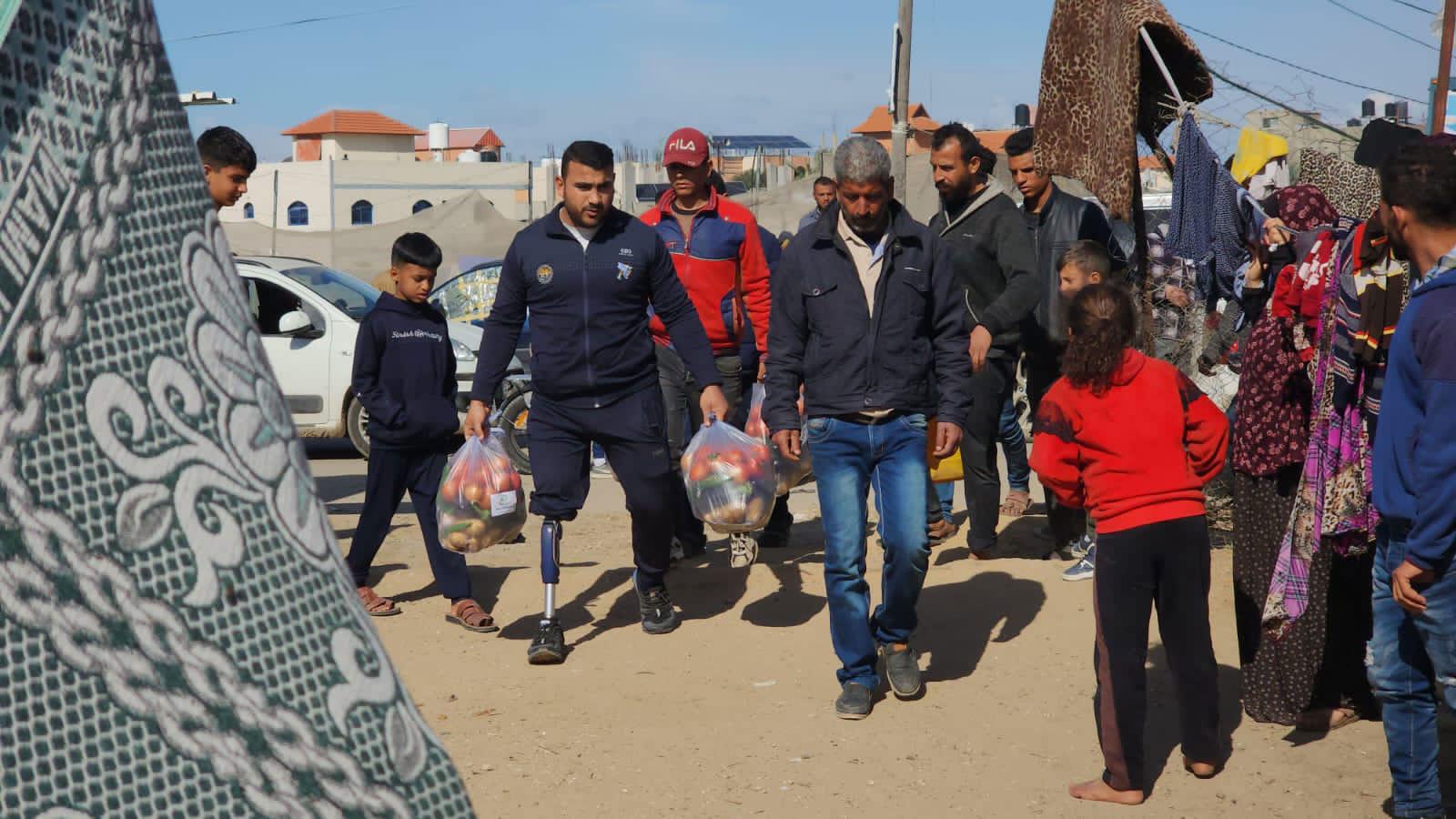This year was supposed to be a big one for the Gaza Sunbirds paracycling team. Since forming in 2020, the group’s dream was to compete at the 2024 Summer Paralympics in Paris.
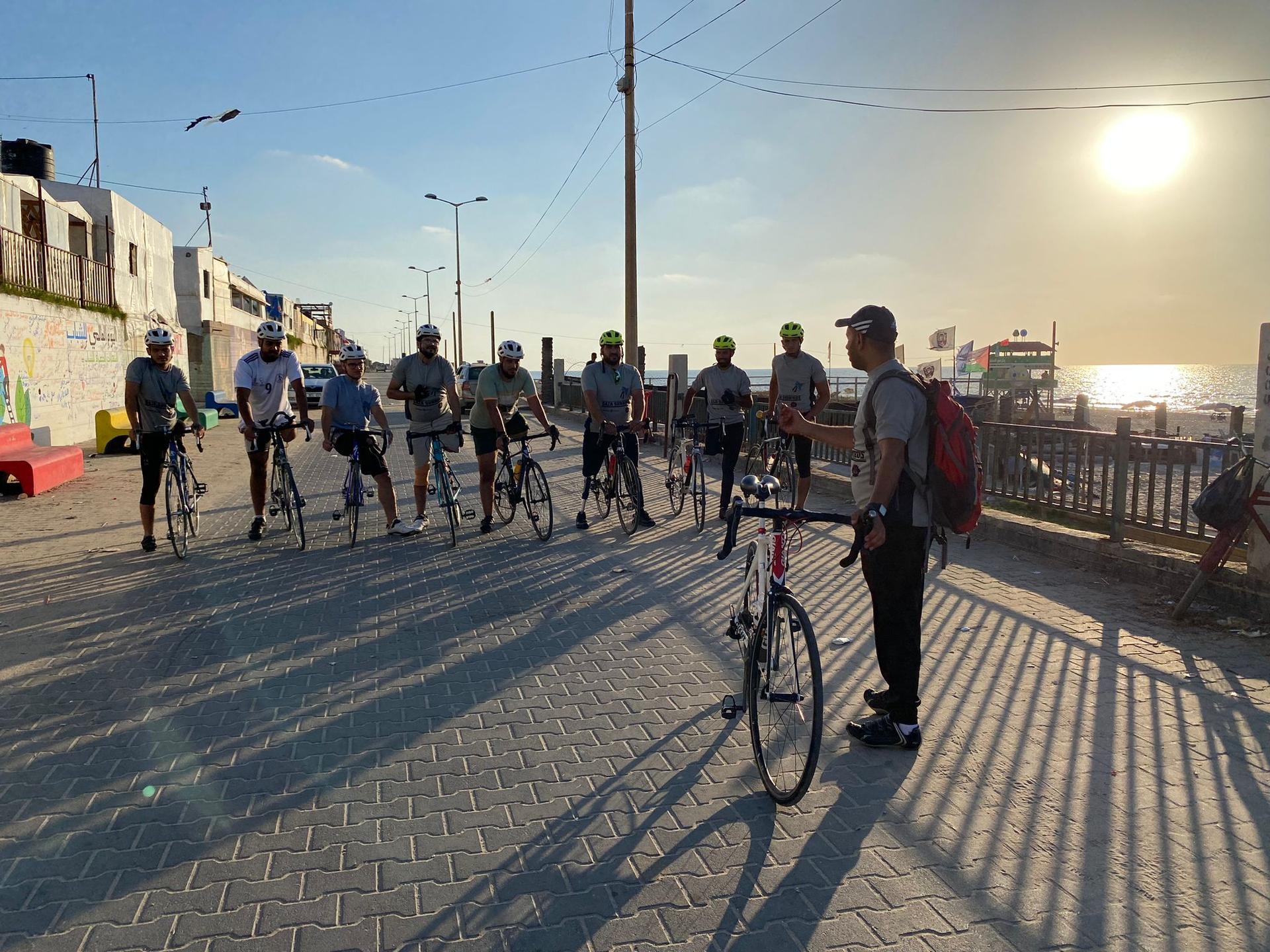
But that dream took a backseat on Oct. 7, when Hamas militants attacked southern Israel, sparking the latest fighting in a decadeslong conflict. The Palestinian death toll in Gaza has climbed to 30,320, according to Gaza’s Health Ministry.
Overnight, the Gaza Sunbirds pivoted to helping those in desperate need of help.
When a bomb hit the neighborhood of Khan Younis, in Gaza, cyclist Mohammed Abu Asfour used his bike to escape. Soon after, Asfour and his teammates used money they’d been raising for their Paralympics goal, and began buying bread and distributing it by bike to people in need.
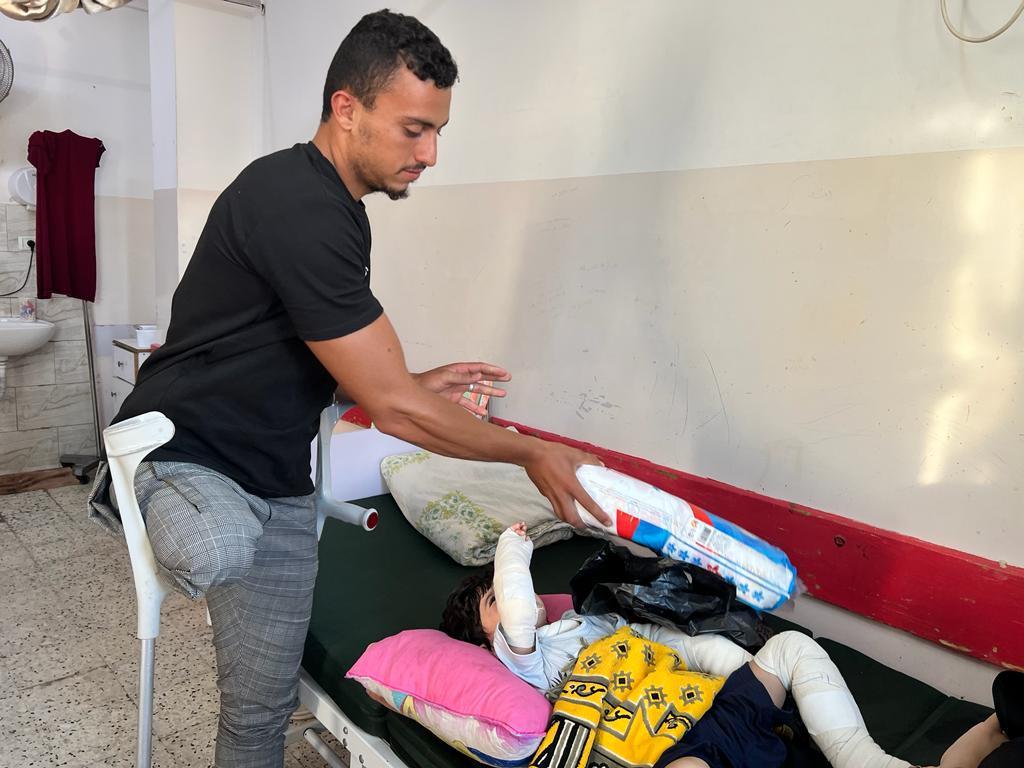
“We do like 300 parcels, 400 parcels, 500 parcels. Each parcel is, like, 16 kilograms — enough for a family for a few days,” said Karim Ali, co-founder and international coordinator of the Gaza Sunbirds. “And we’ve just been doing that consistently.”
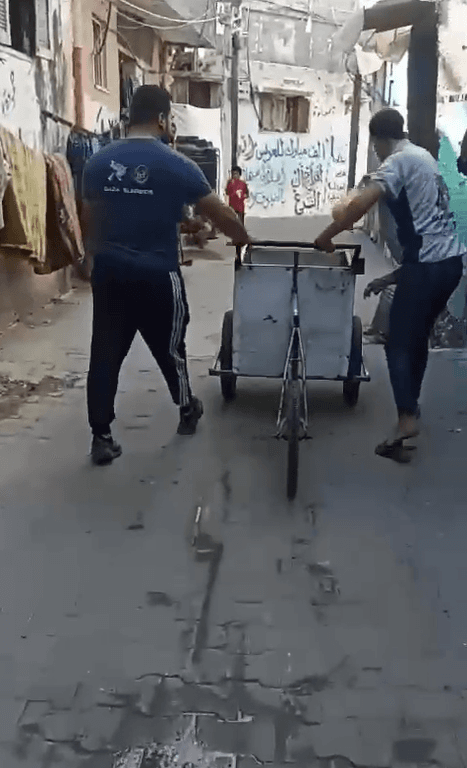
Ali said the Gaza Sunbirds talk to community members to hear what they need before heading into the market to see what resources are available — and, crucially, at what price. Food prices have increased steadily since the start of the war.
To date, they have distributed more than $100,000 worth of food on their bikes. Ali said they’ve distributed other supplies, too, like sanitary products and blankets. Last month, they decided to hand out toys to kids.
“The guys — after speaking to all of the kids, and [with] the war kind of picking up — they said, ‘OK, you know, we have to do something for kids,’” Ali said. “We gave out, like, 140 toys to different kids and families.”
A dream deferred
Members of the Gaza Sunbirds paracycling team are people who have lost limbs to “the aggression of occupation,” Ali explained.
Many of the athletes were injured during the so-called “Great March of Return,” a series of demonstrations in 2018 and 2019, during which protesters called for the end of the Israeli blockade and the right for refugees to return.
Other Gaza Sunbirds team members were victims of what Ali calls more “silent violence.”
“A lot of our athletes — their injuries have just been as a result of the fact that they couldn’t go out to get treatment for preventable conditions. So, they’ve had to go on and get amputations,” he said. “The Sunbirds have always had an Olympic dream. That’s been the basis of it.”
Last year, the Sunbirds’ athletes trained together weekly, cycling along Gaza’s coastal routes. They crowd-funded enough money to provide athletes with bikes and coaches, and they even met with the Palestinian Olympic Committee last summer.
“But the reality is, it’s really tough to have an Olympic dream in Gaza,” said Ali, who has Palestinian heritage and is based in London. “You can have the craziest business idea in the world, or the biggest dream in the world. When your family’s house gets bombed, you’re back to zero.”
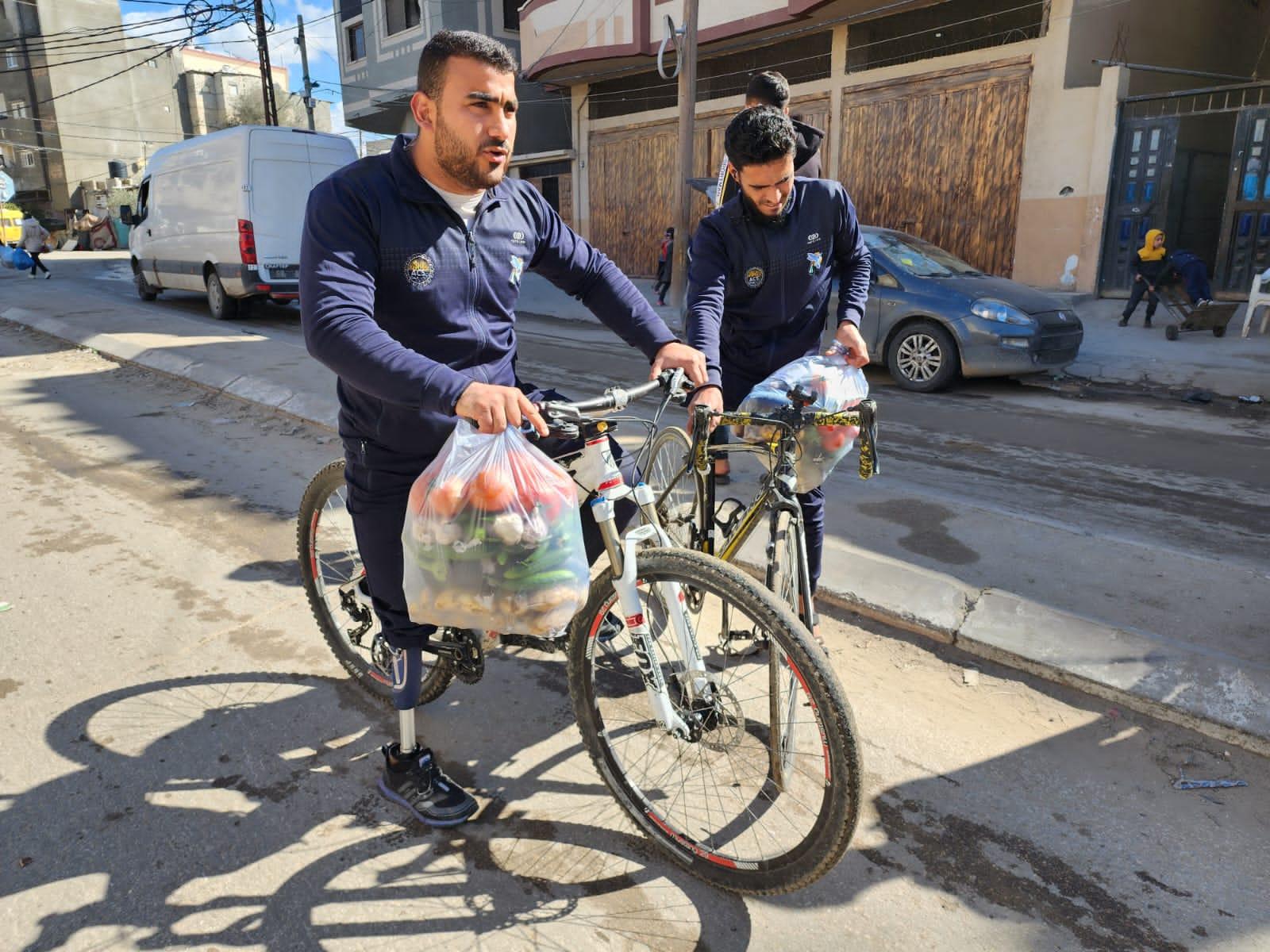
Resilience and strength
Ali said that out of the 25-member team, about 80% of them have been displaced since the most recent war began in October 2023. Most are now living in tents in Rafah, Gaza’s southernmost city.
But 10 team members are still able to keep going out to deliver food on their bikes, he said.
“No one knows when the bomb is going to hit, when it’s going to drop, or anything like that,” Ali said. “And so the general spirit on the ground is, ‘We might as well die doing something than die doing nothing.’ It gives them a little bit of a purpose.”
Their actions have inspired others around the world, like George Qadado, a US-born cyclist of Palestinian descent.
“Their cause — their culture — speaks directly to me,” Qadado said.
He is one of the 100 athletes who have signed on to “Athletes for Palestine,” a campaign by the Gaza Sunbirds seeking to rally support from the international sporting community. Irish cyclist Mark Rohan and Jordanian taekwondo athlete Fahed Ammar have also joined the cause.
“When I see the footage of the Sunbirds — and really beyond the Sunbirds to all the Palestinians in Gaza — it is harrowing and it is painful,” Qadado said. “But at the same time, I feel more incredibly emboldened now than ever to use my voice and my position and my small platform as an amateur athlete to speak on their behalf and help them to be seen.”
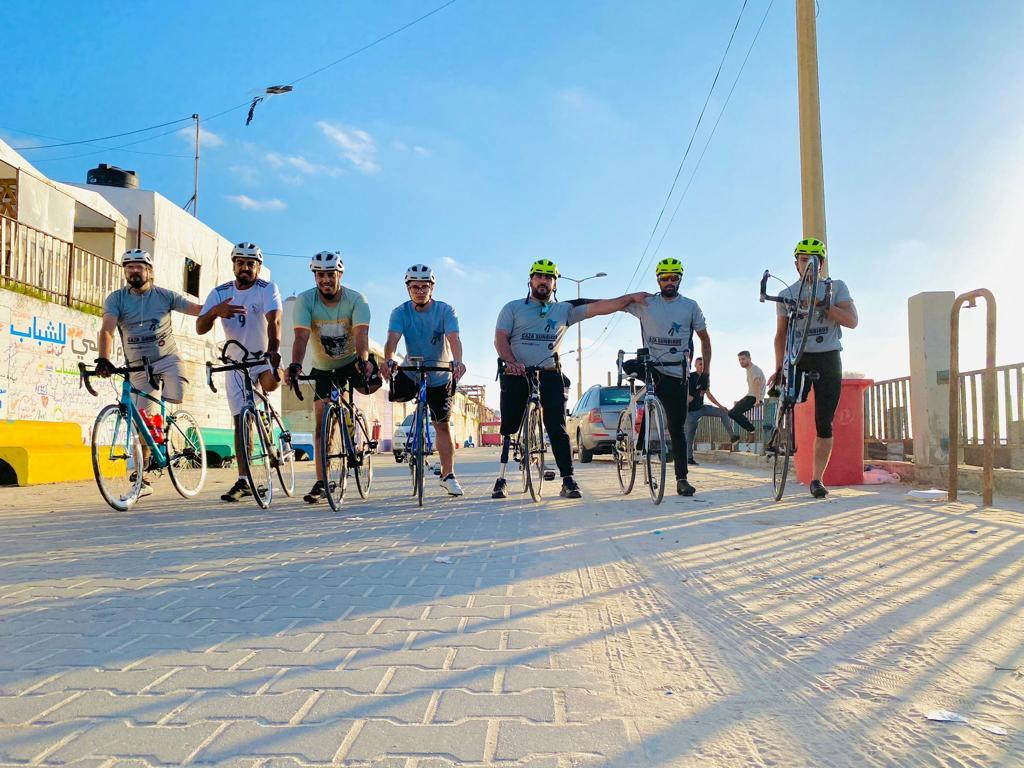
Qadado added he also sees resilience and strength in the cycling team’s Instagram videos — especially when they show themselves playing with the local children. One recent video shows team member Hazem Suleiman playing with his daughter. He then takes her for a ride on his bike and she smiles, saying she’s happy and she’d like a bike of her own.
Ali said team members are also looking forward to the future, when they believe the Gaza Sunbirds will be even more necessary.
“The rate of amputations in Gaza has been skyrocketing,” Ali said. “So, there’s going to be a massive need [for help, getting] all of these people back to mobility. How you help them get their independence again, I think we definitely see the role of cycling, for that, in the future.”
As for their original goal — going to the Paralympics — Ali said the dream is very much alive. They’re even hoping to get some athletes out to competitions by the end of the year.
But for now, the Gaza Sunbirds are sharing their daily experiences with 66,000 Instagram followers. They’ve also worked to garner international support by organizing bike rides called “The Great Ride of Return,” where people ride in solidarity with Palestinians.
The team is banding together, despite hardships, and are determined to distribute whatever food and supplies they can gather.
